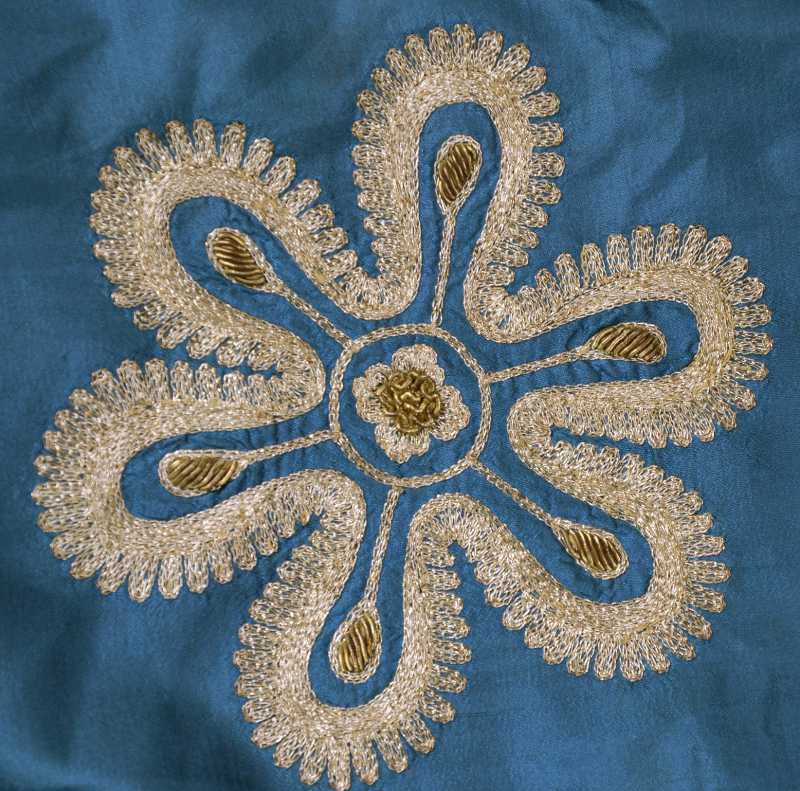===
0236x,
3
===

=== |
 |
ʿarsh-o-dil meñ rahe magar barsoñ
vahm hai par kahīñ kahīñ hai qiyās
1a) he might remain in the heavens and the heart perhaps/perchance for years
1b)
we remained in the heavens and the heart perhaps/perchance for years
2a)
but somewhere is illusion/imagination/suspicion, somewhere [else] is conjecture/estimation/judgment
2b) there is illusion/imagination/suspicion, but here and there is conjecture/estimation/judgment
magar : 'If not, unless, except, save, save only, but; besides, however, moreover; —perhaps, perchance, peradventure, by chance, haply, probably, possibly'. (Platts p.1061)
vahm : 'Thinking, imagining, conceiving (esp. a false idea); —opinion, conjecture; imagination, idea, fancy; —suspicion, doubt; scruple, caution; distrust, anxiety, apprehension, fear; —a superstition'. (Platts p.1205)
kahīñ kahīñ : 'Here and there, in sundry places; at times, sometimes; at intervals'. (Platts p.886)
qiyās : 'Measuring (by or with); comparing (with); measurement, comparison; —reasoning, ratiocination; a syllogism; —regular form, analogy, rule; judgment, opinion; thought, conception; fancy; theory; supposition, conjecture, guess'. (Platts p.796)
FWP:
SETS == FILL-IN; GENERATORS; MAGAR; SUBJECT?
MOTIFS == BELOVED IS GOD
NAMES == [LORD]
TERMS == PADDINGOn the source of these verses see {236x,1}.
Since the first line provides no subject, we can take rahe to be either a singular future subjunctive agreeing with the Lord, as in (1a), or a plural perfect agreeing with us, as in (1b). Of course there's no specific reference to 'us' in the verse; but then, there's no specific reference to the Lord either. In fact there's no specific reference to anybody.
If we break up the two occurrences of kahīñ , we have an equal or random distribution, as in (2a)-- somewhere there is X, somewhere there is Y. If we take them as a redoubling, as in (2b), then basically there is X, but here and there are outcroppings of Y.
Then just to complicate things further, consider the two alternatives vahm and qiyās . SRF rightly highlights the difference between them (the former is always 'without foundation', while the latter includes 'reasoning'). But it's also clear that they have substantial areas of overlap; see the definitions above. Both words include the range 'opinion, thought, idea, imagination, fancy'. So another reading of the second line would be a kind of ironically despairing one: somewhere there are opinions, somewhere there are thoughts-- but nowhere is there real, solid knowledge.
And what is there such a lack of knowledge about? SRF plausibly supposes that it's the Lord, since he dwells in the heavens and the heart. But on the equally plausible reading (1b), in which 'we' dwelt in both places, it may be knowledge about the heavens, or about the heart, or about ourselves. And in fact it may call into question our long residence in the heavens and the heart-- perhaps it's only an 'illusion' or a 'guess' that we did so, not a reality.
Since we can break the first line into two residences, and the second line into two places, one final reading would segment the lines: the first residence is X, the second residence is Y. Thus our dwelling in the heavens might be an 'illusion' and thus totally 'without foundation', while our residence in the heart might be a 'conjecture' and thus at least somewhat rational or reasonable.
Basically, the combination of abstraction and vagueness means that we can choose for ourselves, to quite a radical degree, what the verse is about. It offers us an astonishing range of metaphysical possibilities; not a bad achievement, for a poem fourteen words long.